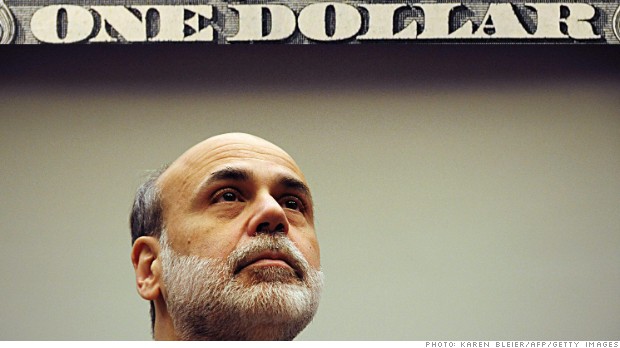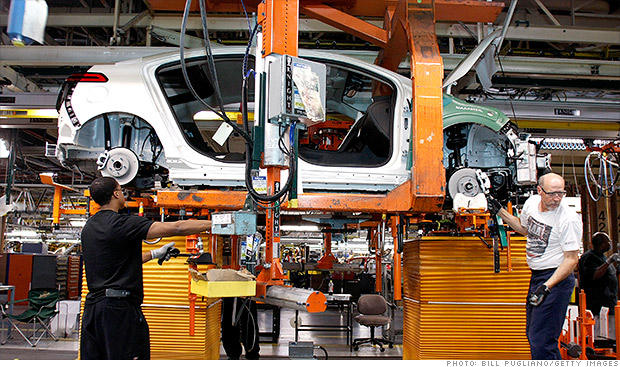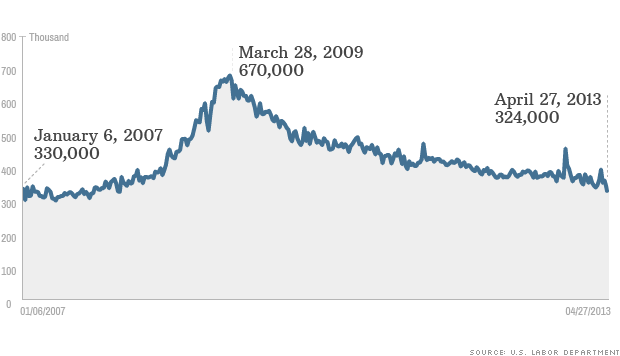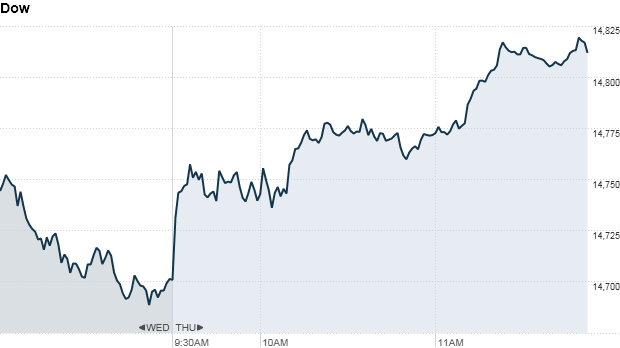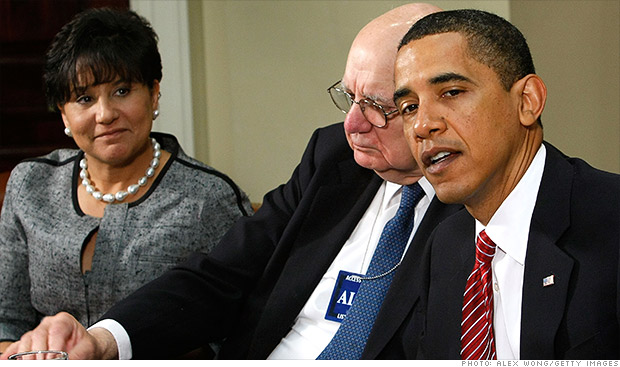
Warren Buffett with the late Katharine Graham of the Washington Post at his 50th-birthday party in 1980
(Fortune)
In the flood of words written recently about women and work, one related and hugely significant point seems to me to have been neglected. It has to do with America's future, about which -- here's a familiar opinion from me -- I'm an unqualified optimist. Now entertain another opinion of mine: Women are a major reason we will do so well.
Start with the fact that our country's progress since 1776 has been mind-blowing, like nothing the world has ever seen. Our secret sauce has been a political and economic system that unleashes human potential to an extraordinary degree. As a result Americans today enjoy an abundance of goods and services that no one could have dreamed of just a few centuries ago.
But that's not the half of it -- or, rather, it's just about the half of it. America has forged this success while utilizing, in large part, only half of the country's talent. For most of our history, women -- whatever their abilities -- have been relegated to the sidelines. Only in recent years have we begun to correct that problem.
Despite the inspiring "all men are created equal" assertion in the Declaration of Independence, male supremacy quickly became enshrined in the Constitution. In Article II, dealing with the presidency, the 39 delegates who signed the document -- all men, naturally -- repeatedly used male pronouns. In poker, they call that a "tell."
Finally, 133 years later, in 1920, the U.S. softened its discrimination against women via the 19th Amendment, which gave them the right to vote. But that law scarcely budged attitudes and behaviors. In its wake, 33 men rose to the Supreme Court before Sandra Day O'Connor made the grade -- 61 years after the amendment was ratified. For those of you who like numbers, the odds against that procession of males occurring by chance are more than 8 billion to one.
Watch an interview with Warren Buffett on women, work, and other wisdom
When people questioned the absence of female appointees, the standard reply over those 61 years was simply "no qualified candidates." The electorate took a similar stance. When my dad was elected to Congress in 1942, only eight of his 434 colleagues were women. One lonely woman, Maine's Margaret Chase Smith, sat in the Senate.
Resistance among the powerful is natural when change clashes with their self-interest. Business, politics, and, yes, religions provide many examples of such defensive behavior. After all, who wants to double the number of competitors for top positions?
But an even greater enemy of change may well be the ingrained attitudes of those who simply can't imagine a world different from the one they've lived in. What happened in my own family provides an example. I have two sisters. The three of us were regarded, by our parents and teachers alike, as having roughly equal intelligence -- and IQ tests in fact confirmed our equality. For a long time, to boot, my sisters had far greater "social" IQ than I. (No, we weren't tested for that -- but, believe me, the evidence was overwhelming.)
The moment I emerged from my mother's womb, however, my possibilities dwarfed those of my siblings, for I was a boy! And my brainy, personable, and good-looking siblings were not. My parents would love us equally, and our teachers would give us similar grades. But at every turn my sisters would be told -- more through signals than words -- that success for them would be "marrying well." I was meanwhile hearing that the world's opportunities were there for me to seize.
So my floor became my sisters' ceiling -- and nobody thought much about ripping up that pattern until a few decades ago. Now, thank heavens, the structural barriers for women are falling.
MORE: How Gen-Y women can close the pay gap
Still an obstacle remains: Too many women continue to impose limitations on themselves, talking themselves out of achieving their potential. Here, too, I have had some firsthand experience.
Among the scores of brilliant and interesting women I've known is the late Katharine Graham, long the controlling shareholder and CEO of the Washington Post Co. (WPO) Kay knew she was intelligent. But she had been brainwashed -- I don't like that word, but it's appropriate -- by her mother, husband, and who knows who else to believe that men were superior, particularly at business.
When her husband died, it was in the self-interest of some of the men around Kay to convince her that her feelings of inadequacy were justified. The pressures they put on her were torturing. Fortunately, Kay, in addition to being smart, had an inner strength. Calling on it, she managed to ignore the baritone voices urging her to turn over her heritage to them.
I met Kay in 1973 and quickly saw that she was a person of unusual ability and character. But the gender-related self-doubt was certainly there too. Her brain knew better, but she could never quite still the voice inside her that said, "Men know more about running a business than you ever will."
I told Kay that she had to discard the fun-house mirror that others had set before her and instead view herself in a mirror that reflected reality. "Then," I said, "you will see a woman who is a match for anyone, male or female."
I wish I could claim I was successful in that campaign. Proof was certainly on my side: Washington Post stock went up more than 4,000% -- that's 40 for 1 -- during Kay's 18 years as boss. After retiring, she won a Pulitzer Prize for her superb autobiography. But her self-doubt remained, a testament to how deeply a message of unworthiness can be implanted in even a brilliant mind.
MORE: Warren Buffett may be souring on stocks
I'm happy to say that funhouse mirrors are becoming less common among the women I meet. Try putting one in front of my daughter. She'll just laugh and smash it. Women should never forget that it is common for powerful and seemingly self-assured males to have more than a bit of the Wizard of Oz in them. Pull the curtain aside, and you'll often discover they are not supermen after all. (Just ask their wives!)
So, my fellow males, what's in this for us? Why should we care whether the remaining barriers facing women are dismantled and the fun-house mirrors junked? Never mind that I believe the ethical case in itself is compelling. Let's look instead to your self-interest.
No manager operates his or her plants at 80% efficiency when steps could be taken that would increase output. And no CEO wants male employees to be underutilized when improved training or working conditions would boost productivity. So take it one step further: If obvious benefits flow from helping the male component of the workforce achieve its potential, why in the world wouldn't you want to include its counterpart?
Fellow males, get onboard. The closer that America comes to fully employing the talents of all its citizens, the greater its output of goods and services will be. We've seen what can be accomplished when we use 50% of our human capacity. If you visualize what 100% can do, you'll join me as an unbridled optimist about America's future.
This story is from the May 20, 2013 issue of Fortune. 
First Published: May 2, 2013: 6:47 AM ET
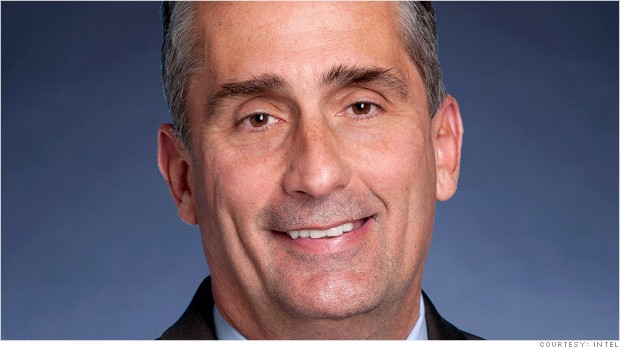
![]()

